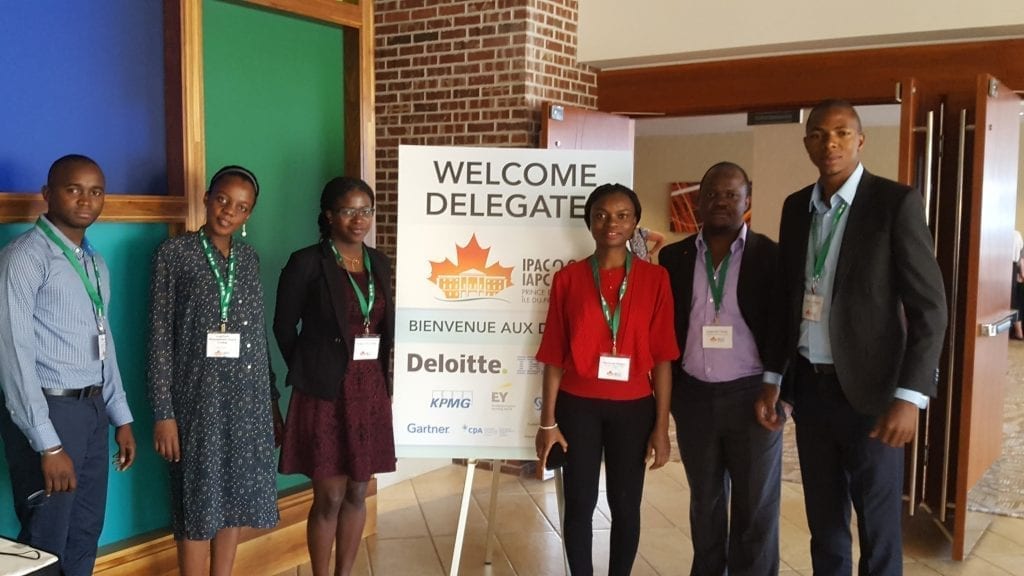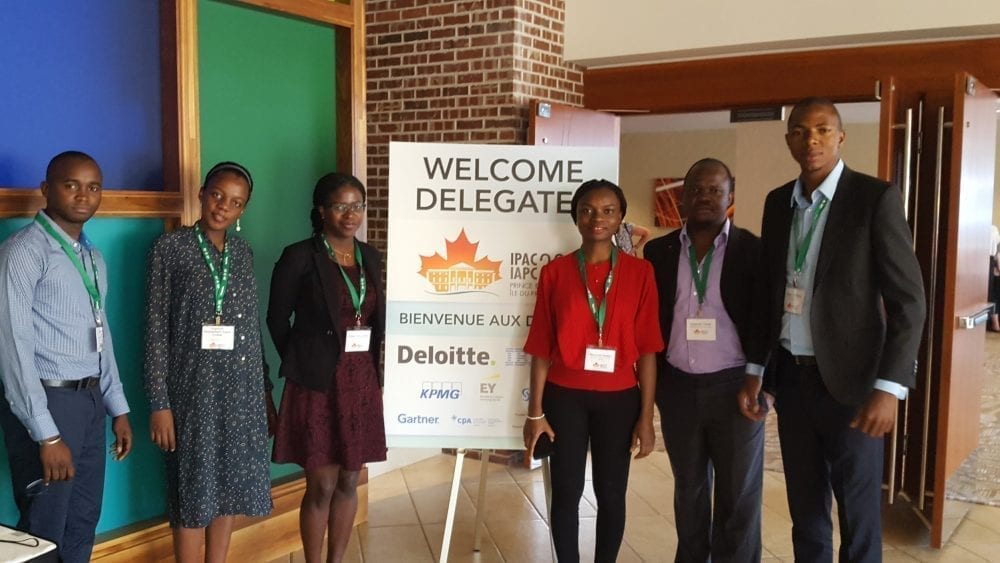From August 20 to 23, eight African Leaders of Tomorrow (ALT) scholars participated in the Annual Conference of the Institute of Public Administration of Canada (IPAC), an ALT program partner. The conference provided opportunities to network, form new connections, grow knowledge about the Canadian public service and learn about current and future challenges in public administration.
The scholars shared some of the takeaways from the conference and key lessons applicable to Africa.
Innovation and Leadership
There is a growing call for governments to lead through innovation. Policy makers must be innovative in finding creative solutions to complex public problems. The innovation process must include everyone in the organization instead of being led and controlled by the few. Leaders pay an important role but innovation can be made by every employee.
From extractive to regenerative policy
We live in a post-trust era. Policy innovations should incorporate finding new ways to rebuild public trust in governments. Thus, policy makers must pivot from extractive to regenerative policies.
Citizen participation and social media
People should always be at the heart of policy that government or private corporations introduce. Citizen participation in shaping policies allows people to have a sense of ownership and fully engage in both public and private sector programs. The overall strategy of these policies should be to tackle multiple issues and not address issues in silos.
Public service providers and policy makers must recognize that social media is part of the current era and embrace them. Social media provides a medium for capture the views of citizens and provide services differently.
But caution is needed as the quality and seriousness of social media responses can vary. Public face-to-face sessions provide better information about the expectations of the public.
Reconciliation is about the future, not the past
We need to re-imagine society and enact policies that support better relationships and help us find more efficient ways to work together in solving the most pressing issues.
Reconciliation builds respect, equality, equity and unity. It is not a one-time project; it is a shared responsibility and should be crafted responsibly as a life-long process, woven into every sector of governance.
A key to reconciliation is education. As Africans, we have to move forward to change our education systems to build a stronger regardless of our past. The nation-to-nation reconciliation in Canada with Indigenous people offers a model which conflict-affected countries in Africa can learn from. While reconciliation is a daunting and painful experience, it is also the cornerstone for development and prosperity.

Left to right: L to R: Malick Wade (Senegal, Université de Montréal), Angelique Sugira (Rwanda, University of Regina), Tinashe Mutsonziwa (Zimbabwe, University of British Columbia), Oluwtoyin Onabola (Nigeria, University of British Columbia), Fred Varnie (Liberia, Wilfrid Laurier University), Aboubacar Fofana (Guinea, Université de Moncton). Absent: Ahmed Elmi (Somalia, Wilfrid Laurier University), Bruno Ruberwa (Uganda, McMaster University)
The ALT Scholarship Program is funded by the Government of Canada through Global Affairs Canada and by the Mastercard Foundation. It is managed by CBIE in partnership with the Institute of Public Administration of Canada and in collaboration with the African Association of Public Administration and Management and the Canadian Association of Programs in Public Administration.



Comments are closed.